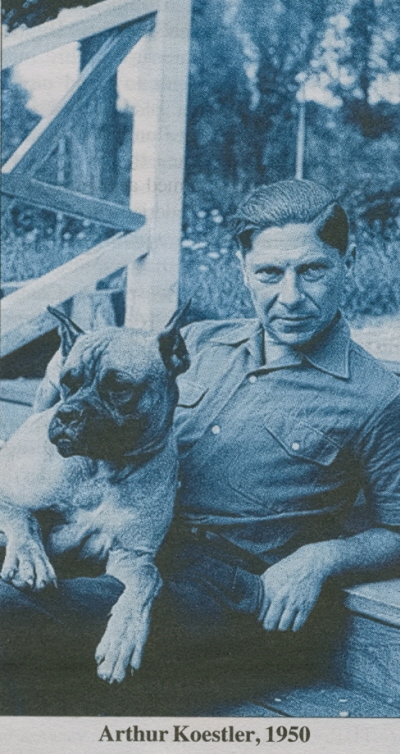 |
Arthur Koestler and the ‘Political Libido’ Koester và cái gọi là "Li-bi-đô Chính trị" [Li-bi-đô phải đạo] Ui chao, lại nhớ đến cái "chính trị phải đạo" của một em Mít viết phê bình bằng tiếng Tẩy  Tiểu
thuyết của Koestler cho thời của chúng ta
True unbeliever: Arthur Koestler and the
‘Political
Libido’ When Arthur Koestler stopped writing about
politics in
the early 1950s and launched his second career as a scientific author,
he
likened it to a change of sex, yet his second sex did not enjoy the
respect he
felt it deserved. "What I most resent", he told Ian Hamilton in 1974,
"is being labeled for ever as the author of Darkness at
Noon and other political books at the expense of the
second half of my work, which to my mind is the more important." Today,
if
readers know him at all, it is indeed for Darkness
at Noon, or possibly The God That
Failed. Harold Bloom gave a nice passive-aggressive summary of the
received
view in 2001. "Koestler achieved fame during the Cold War era, which in
the first decade of the twenty-first century is now remote, if not
archaic. For
Koestler, Soviet Communism was the God that Failed, and he went off
whoring
after even stranger Gods, settling finally for the God of a weird,
personal
Evolutionism."
Vũ Thư
Hiên vs Koestler Whoring is the wrong word here for any number of reasons, but even Koestler's most enthusiastic admirers have to concede that his late career swerve into the crackpot world of ESP and the paranormal did his reputation no service. Then there was David Cesarani's bizarre biography (reviewed in the TLS, January 12, 1999), which promised a deeper understanding of its subject - and succeeded brilliantly. By the time he was through, he had recast Koestler in the public mind as a bully, a drunk and a rapist. Cesarani seemed to think that Koestler's private transgressions somehow invalidated the published work (he tyrannized his wife, so why listen to him banging on about Stalin?). Yet neither Koestler's private faults nor his occult obsessions should diminish, it seems to me, the value of his great literary work. The pity is not that the later work is neglected, but that appreciation of his political writing is so narrowly constricted to Darkness at Noon. His works of the 1940s alone constitute one of the strongest bibliographies of twentieth-century political writing. Vintage helped somewhat by reissuing his superb, two-volume autobiography, Arrow into the Blue (1952) and The Invisible Writing (1954) for the centenary of his birth in 2005. This is a masterpiece of the genre. But his two equally powerful memoirs of imprisonment in
|